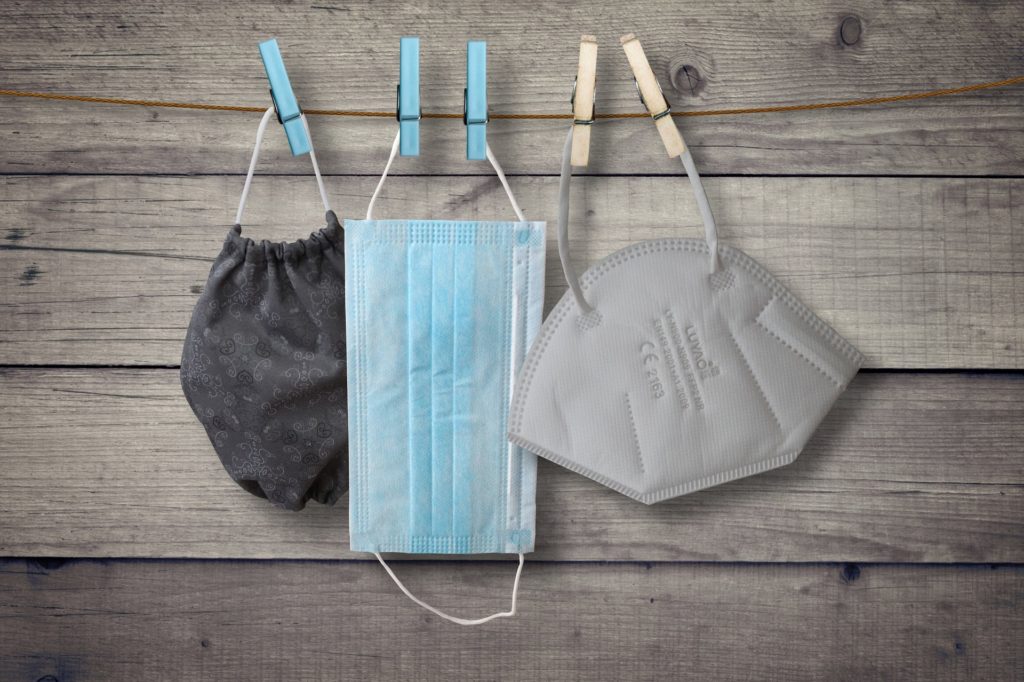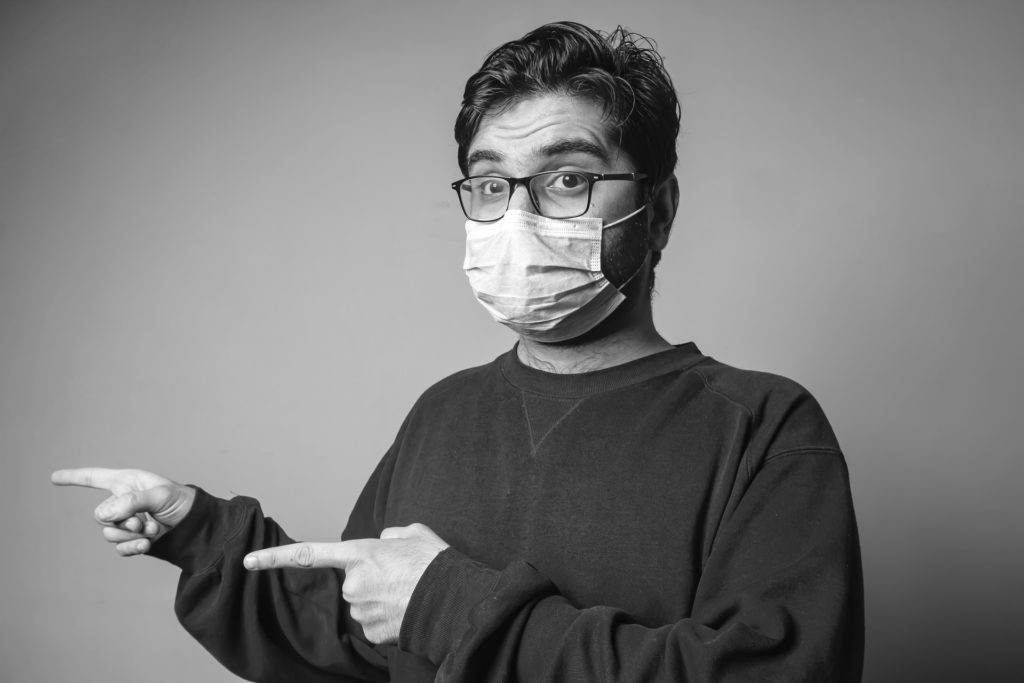Before vaccines took center stage and forced masks to take a supporting role in the COVID-19 pandemic drama, masks were and still are in many parts of the country as important to daily life as brushing your teeth each day. Work, shopping, places of worship, travel, entertainment, recreation, you can’t get away from them. We’ve gone from cloth masks with one then two then three layers, and now calls for surgical masks and filtering facepiece respirators (N95, KN95, KF94). What do you do as an employer when requiring masks in the workplace?
Cloth is No Longer Good Enough
The University of Arizona announced on January 5th, that cloth masks will no longer meet the face covering requirements of the University. The new policy reads, “we will require the use of surgical or higher-grade (KN95, KF94, and N99) face masks be worn.” On January 11th, the CDC announced that they are considering updating its recommendations for N95 and KN95 masks considering omicron because they “provide better filtration”.
Just Cover Your Face
During the pandemic, we have all seen ridiculous examples of face masks. Paper dust masks, cloth masks sewn by the kind grandma down the street, gaiters, t-shirts wrapped around a person’s face, plastic shields, bedazzled mesh, and the flap that makes you look a bank robber from the old west. Just look at Etsy to see how covering one’s face has become a new sector of the economy. If you have had any experience with industrial hygiene or occupational health where protecting workers from particulate exposure is a major concern, you have obviously seen the flawed reasoning behind what has been deemed acceptable respiratory protection, especially when it comes to viruses.

A Face Mask is Just a Face Mask, Isn’t It?
The University of Arizona has not been the first to require a higher quality face mask, and they will not be the last especially after CDC director Rochelle Walnesky’s comments at the White House briefing on January 12th. Though her comments reflected forthcoming changes that will present mask options to the public, there will be employers and institutions that will impose requirements for N95 or similar masks. Though often referred to as dust masks, these products are classified as negative pressure particulate respirators by OSHA and NIOSH. So why does a designation as a respirator make a difference?
OSHA and Negative Pressure Particulate Respirators
During the pandemic, many became acquainted with the term N95 respirators that were to be reserved for health care workers in the early days of the pandemic. The N95 respirator is certified by the National Institute of Occupational Safety & Health (NIOSH) and is designed to filter out 95% of airborne particles. The KN95 is the Chinese version, and the KF94 is the South Korean version of the N95 respirator. An N99 respirator is NIOSH certified to filter out 99% of airborne particles. Individuals can purchase any of these products for personal use. However, if an employer requires the use of this type of respirator, OSHA mandates that employees required to wear a respirator participate in a comprehensive respiratory protection program that consists of employee training, fit testing, and a medical evaluation.1,2

If I Can Buy a Respirator Online, I Shouldn’t Have Any Problems Using It
Have you ever worn an N95 or a KN95 for a prolonged time? During a cross-country flight in the early days of the pandemic, I wore a KN95 respirator. Slogging through the airport on both ends of the trip, five-plus hours on a plane, humidity, and condensation from my own breath, resulted in an uncomfortable experience. For years, I was involved in the medical clearance and fit testing of employees to wear N95 respirators in work conditions far more extreme than a trip across the country. Not everyone was cleared to wear these respirators.
OSHA has attempted to protect American workers from respiratory harm since 1971, with the revised respiratory standard going into effect in 1998 (29 CFR 1910.134 and 29 CFR 1926.103). Obviously, OSHA has concerns about the random use of N95 respirators if it has such strict requirements of employers who require their use.
N95, KN95, KF94, and N99 respirators are not like wearing a surgical mask. These respirators when properly worn form a tight seal around the mouth and nose unlike surgical masks and definitely unlike the cloth masks we have been wearing. Depending on the environment in which you are wearing one of these respirators, dust and moisture make them even more challenging to use. And yet there are those advocating for their required use by all. Yes, they are superior in their ability to protect, but should everyone be wearing one? Will employers and institutions try and get around the OSHA standard by requiring KN95 or KF94 respirators and not mentioning NIOSH certified N95 respirators? If you thought wearing that tacky cloth mask was annoying, just try a KN95 all day long.
What Should You Do as An Employer?
Omicron is racing across the country and has probably impacted your workplace. If masking is mandated by local, state, or federal regulations or is a requirement unique to your workplace, consider all ramifications of requiring the use of respirators versus surgical masks. Make sure you are considering the needs and safety of your employees beyond the exposure to a virus. If the CDC revises their mask recommendations, exercise caution in choosing which masks your employees must wear unless required by regulation or law. Keep in mind, if you require your employees to wear N95 masks, OSHA can and has cited employers during the pandemic for failing to comply with the Respiratory Protection Standard.3
(1) United States Department of Labor, Occupational Safety and Health, Standard Number 1920.134, https://www.osha.gov/laws-regs/regulations/standardnumber/1910/1910.134
(2) OSHA, Understanding Compliance with OSHA’s Respiratory Protection Standard During the Coronavirus Disease 2019 (COVID-19) Pandemic, https://www.osha.gov/sites/default/files/respiratory-protection-covid19-compliance.pdf
(3) Ho, John; Sullivan, James. “Employers are being Cited by OSHA for Failing to Comply with the Respiratory Protection Standard and Not just Healthcare Industry Employers.” JDSUPRA, 16 Apr. 2021, https://www.jdsupra.com/legalnews/employers-are-being-cited-by-osha-for-6706957/

